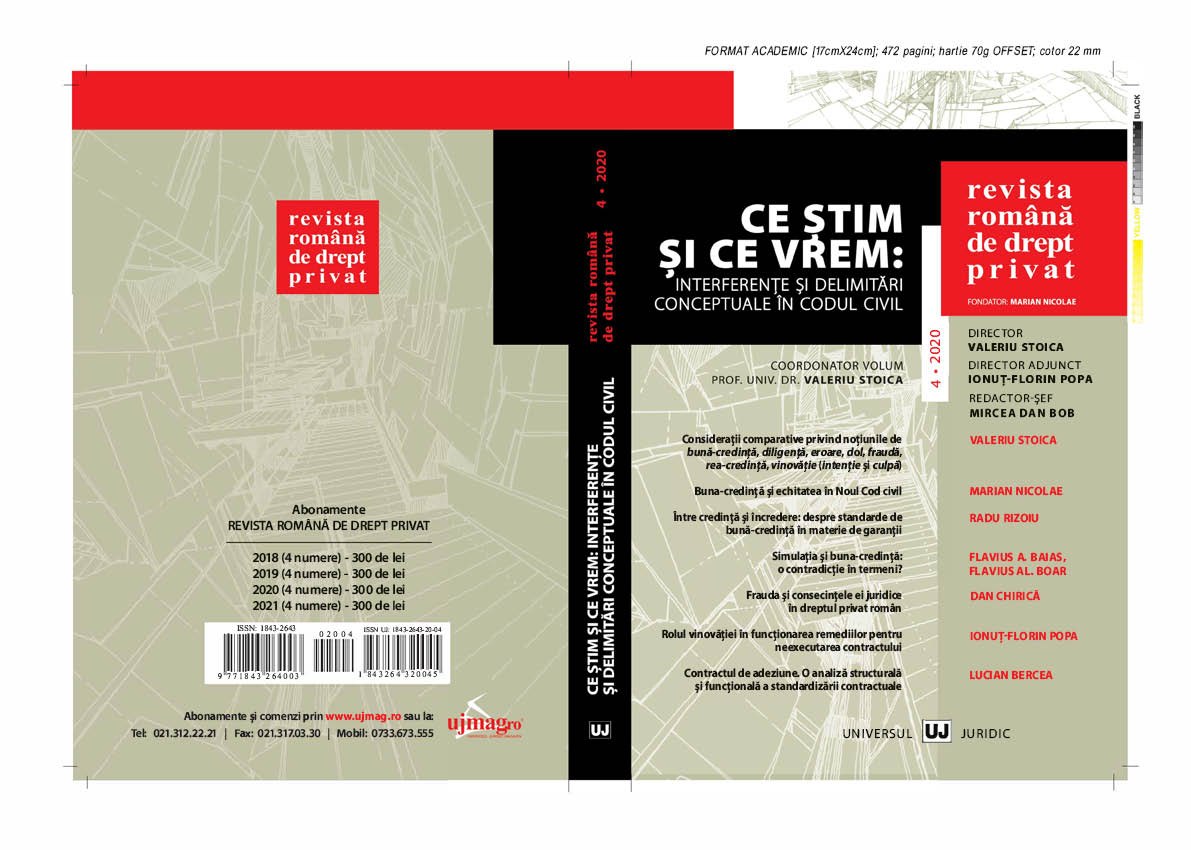Buna-credinţă şi echitatea în Noul Cod civil
Good faith and equity in the New Civil Code
Author(s): Marian NicolaeSubject(s): Law, Constitution, Jurisprudence, Civil Law
Published by: Universul Juridic
Keywords: good faith; general clauses; judicial law; positive law; strict law; equity; the sources of civil law; the New Civil Code; general principles of (civil) law;
Summary/Abstract: In the New Civil Code, good faith and equity are fundamental, autonomous but, in principle, complementary legal concepts, through the functions they serve. Firstly, if good faith in a subjective sense is synonymous with faith or legitimate error over an actual legal situation, good faith in an objective sense is aimed at honest, fair, loyal and reasonable conduct in the exercise of subjective rights and in the performance of civil obligations. On the other hand, equity in a subjective sense is synonymous with the human feeling of clemency, benevolence, humanity (misericordia), and equity in an objective sense designates the right balance between performances, being the right (ius) in the concrete case. Secondly, the functions of good faith (acquisitive, adaptive, integrative, corrective) depend on the nature or the kind of good faith (subjective or objective), whereas the functions of equity (integrative, corrective, regulatory) ensure the realization of the right, sometimes even contra legem (ius strictum). Thirdly, good faith (in an objective sense) is regulated by mandatory rules, while equity (in an objective sense) is regulated by rules, in principle, dispositive, meaning that the requirements of equity can, as a rule, be waived, but not the requirements of good faith. Apart from direct or indirect applications, they are and remain general principles (or clauses), so that the cases and conditions for their application are left to the judge and not to the legislator.
Journal: Revista Română de Drept Privat
- Issue Year: 2020
- Issue No: 04
- Page Range: 70-110
- Page Count: 41
- Language: Romanian
- Content File-PDF

